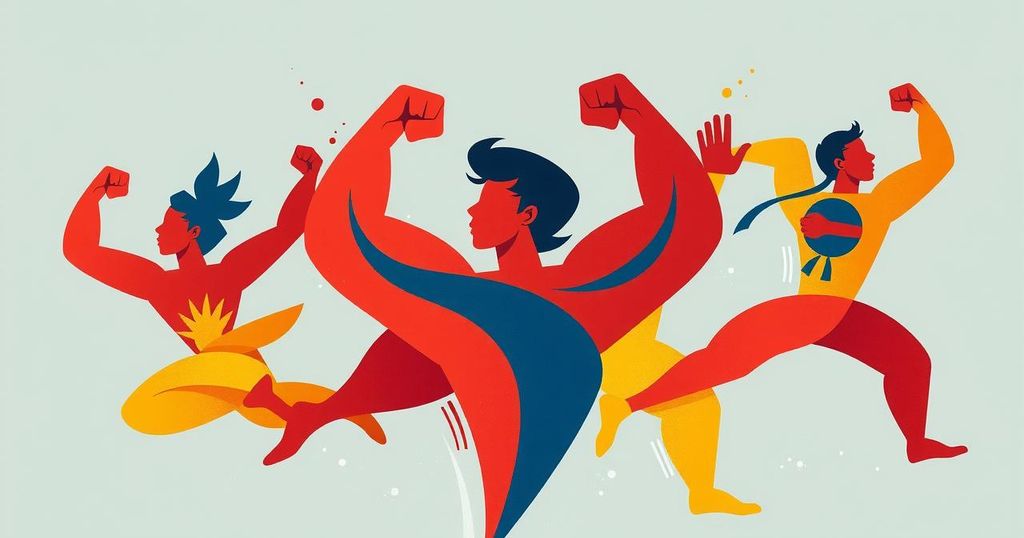Iran News Brief: Repression and International Responses – March 29, 2025

Significant updates from Iran reveal ongoing repression of dissent as the regime grapples with economic crisis. Panama targets the shadow fleet linked to Iran and Russia, while the U.S. Treasury sanctions Hezbollah’s financial operations. The PMOI Resistance Units have seen a rise in anti-regime activities, and human rights violations persist, particularly in the treatment of political prisoners.
In a series of updates regarding Iran’s political landscape and international relations, significant developments have emerged. Senior officials have long acknowledged threats to the regime, illustrating heightened public repression as a tactic to maintain power amid economic strife. Despite ample historical context of repression dating back to the Pahlavi regime, the Iranian government appears resolute in its approach to dissent, suggesting increasing measures will be taken to suppress resistance.
Panama has escalated its crackdown on maritime operations by revoking the registrations of 128 ships linked to Iran and Russia, targeting those involved in illicit oil exports. This decision reflects Panama’s alignment with global sanctions enforcement and highlights the country’s commitment to addressing vessels operating under flags of convenience. The prompt deregistration process underscores Panama’s regulatory tightening amidst international pressure.
The United States Treasury has also taken action against a sanctions evasion network tied to Hezbollah and the Iranian Revolutionary Guard Corps. Specifically, five individuals and three companies have been designated for their roles in facilitating oil smuggling and generating revenue for terrorist activities, reflecting a broader effort to disrupt financial networks that support such operations.
The PMOI Resistance Units have marked a notable turning point in their struggle against the Iranian regime. Over the past year, they have conducted extensive anti-regime activities, reaching over 39,000 across various Iranian provinces. This surge underscores their growing influence and willingness to confront governmental oppression throughout the nation.
In terms of human rights, a recent Iranian government report to the UN claims to absolve the administration of responsibility for the violent crackdown on protests in 2022. However, the report attributes unrest to foreign sanctions rather than addressing the core issues affecting Iranian society, indicating a refusal to acknowledge the government’s role in public dissatisfaction.
Meanwhile, Majidreza Hariri, from the Iran-China Chamber of Commerce, has highlighted alarming levels of corruption and wealth transfer out of Iran, noting that approximately $25 billion is smuggled annually. He cautions that failing to address this corruption could lead to devastating economic consequences.
Varisha Moradi, a political prisoner on death row, continues to be denied necessary medical care, reflecting systemic neglect in the prison system towards dissidents while highlighting the deteriorating conditions faced by political prisoners in Iran.
Amid these crises, Bloomberg has reported that over 10 Iranian vessels carrying crude oil remain stranded near Malaysia, indicative of a slowdown in oil exports, further complicating Iran’s already precarious position in international markets.
Additionally, Ali Khamenei’s adamant rejection of U.S. engagement on nuclear negotiations underscores the regime’s strategic priorities, focused on attaining weapons capability to maintain domestic and regional dominance, amidst ongoing scrutiny by international observers.
Lastly, a recent exhibition held in Luxembourg by supporters of the PMOI/MEK aimed to raise awareness of human rights violations within Iran, particularly the situation of political prisoners and the ongoing executions executed by the state. This reflects an ongoing commitment to advocating for justice and highlighting the significant struggles that the Iranian populace endures under repressive governance.
The recent updates on Iran reveal a complex nexus of repression, economic challenges, and international scrutiny. The Iranian regime’s strategies to maintain power through increased suppression reflect a longstanding pattern of governance that prioritizes control over reform. Concurrently, international actions, such as Panama’s ship registration revocation and U.S. Treasury sanctions, emphasize a concerted effort to challenge Iran’s illicit activities. Furthermore, the highlights of grassroots resistance signify potential avenues for change, yet also underscore the dire human rights landscape that continues to deteriorate within the country.
Original Source: www.ncr-iran.org








